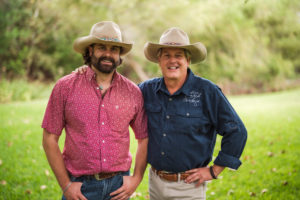Father-and-son duo Dave and Tanner Mayo know that community bankers face an uncertain future, and they’ve been busy to make it less so.

Several months ago, steeped in the belief that bankers are stronger when they work together, the pair applied their knowledge of emerging technology and information ecosystems to build a collaboration and education platform. Dave Mayo, CEO and founder of the financial institutions data analytics firm FedFis, and Tanner Mayo, its president, launched Bankers Helping Bankers in partnership with the Independent Bankers Association of Texas.
Community bankers who participate in BHB, through user groups, are given hard data and information on possible tech partners and/or emerging trends, and introduced to new concepts that have the potential to transform their businesses. Think digital currencies or Banking-as-a-Service.
They didn’t stop there. This past spring, BHB expanded its presence in the crypto and BaaS sectors. In May, it entered into an education partnership with the San Francisco-based digital wealth management platform Unifimoney to hasten the adoption of digital wealth management and cryptocurrency.
In July, BHB launched a venture capital fund managed by the venture capital group Latitude38 Venture Partners. A notable partner in the initiative is Cam Fine, former president and CEO of the Independent Community Bankers of America. Fine is president/CEO of Calvert Advisors, LLC.
Organizers hope the BHB Fund raises approximately $100 million from limited partners, including bank holding companies, in order to help pair community banks with emerging tech.
Also, BHB formed the BaaS Association, a group to support banks that sponsor fintech companies as they inch into delivering banking services.
Tanner Mayo called BaaS banks “elite” in that they innovate and are profitable. “It is essential that banks getting into this space do so in a safe, sound and regulatory compliant way,” he said. “This association is intended to help them embrace the opportunities of BaaS, while proactively identifying and mitigating risks.”
The BaaS association offers two membership levels. “Members” are BaaS banks; they have access to a private member chat board, member networking, private document sharing, a newsletter with BaaS and fintech data, representation with state and federal regulators, and best practices and industry standards. “Affiliate members” might be banks looking to become a BaaS institution or a fintech seeking a sponsor bank. Both are given access to a newsletter, representation with state and federal regulators, sponsor opportunities and other perks.
BaaS association board member Robert Keil said not enough smaller banks are competing in the space despite community financial institutions possessing regulatory advantages. Keil said BaaS banks receive inconsistent regulatory direction, making the life of a sponsor bank harder. Because of this, the association is working with regulators from the OCC, FDIC and CFPB to ensure consistent guidance is given.
To Dave Mayo, the BaaS association levels the competitive playing field between large banks and community banks by allowing smaller banks to add customers they otherwise wouldn’t have access to under a traditional charter. He added that BaaS banks are in the top 1 percent in every earnings category and have unanimously supported keeping the service after adopting the option.
It’s a building block much like the quickly adopted BHB platform, which is now utilized by independent bankers’ associations across the United States and just signed Fiserv as a member.
BHB gained a boost earlier in 2022 when the Community Development Bankers Association announced it would partner with FedFis to provide the program to its Community Development Financial Institution-certified and mission-driven member banks.
An Upper Midwest bankers association that has adopted BHB is the Independent Community Banks of North Dakota. ICBND President Barry Haugen said the platform allows his association’s 52 member banks to have a one-stop shop for needed tech guidance without shelling out the big dollars demanded by consultants. The program is free for bankers. “It’s basically a closed social market with a whole lot of data behind that … and we wanted to extend that tool,” he said.
Though he doesn’t expect bankers will need to use the platform on a daily basis, the option will still be useful in times of need. “It can save a lot of time on the front end,” Haugen said.
The Mayos see BHB and the BaaS Association as not only helping community banks come together and prevent further losses to large banks, but also providing pathways to compete with non-banks which are already adopting tech for their financial services.
“There is room for everyone in this tent, except for big banks,” Dave Mayo said.
